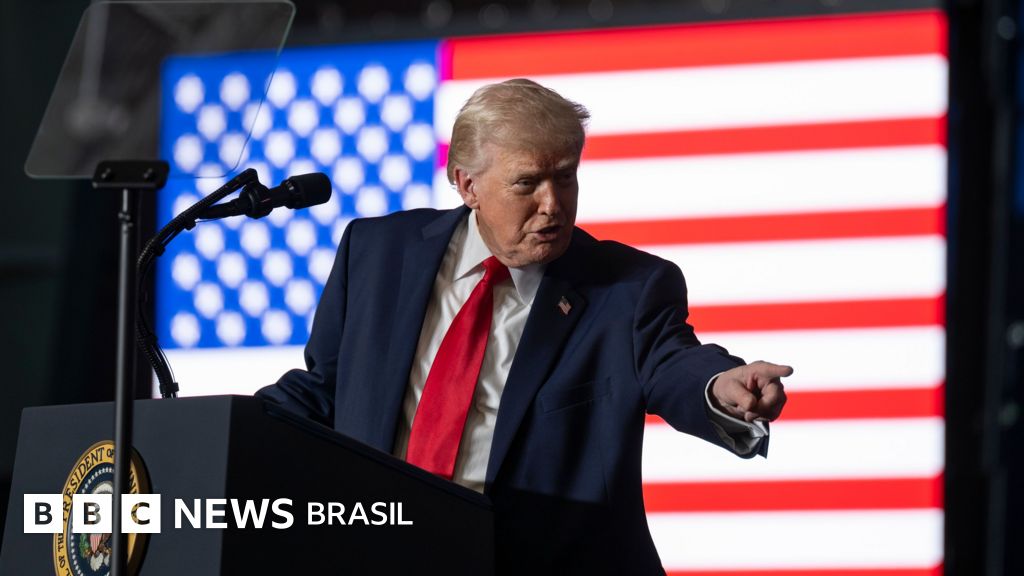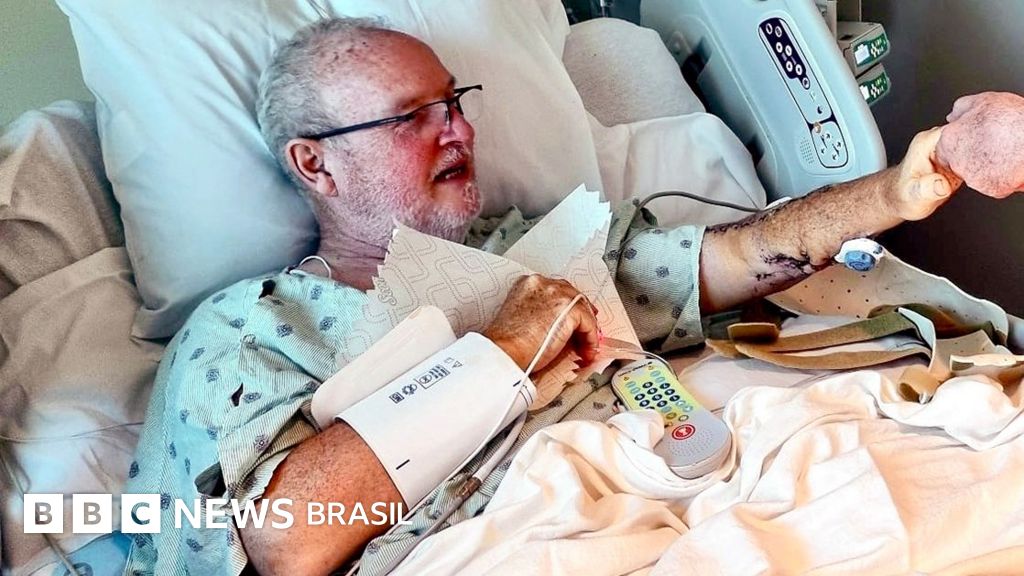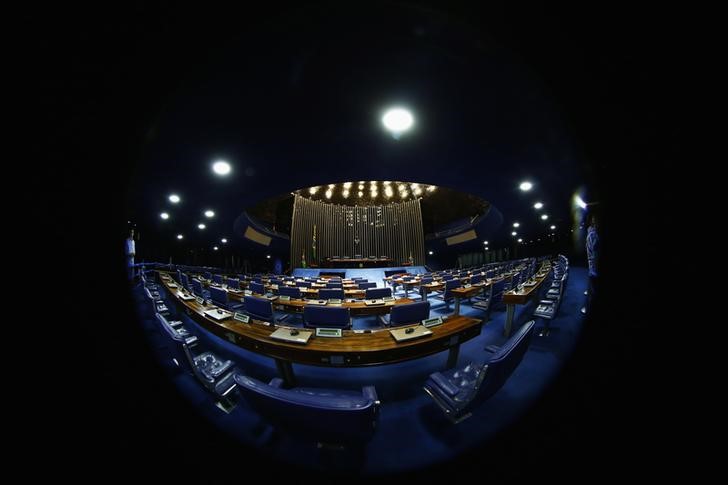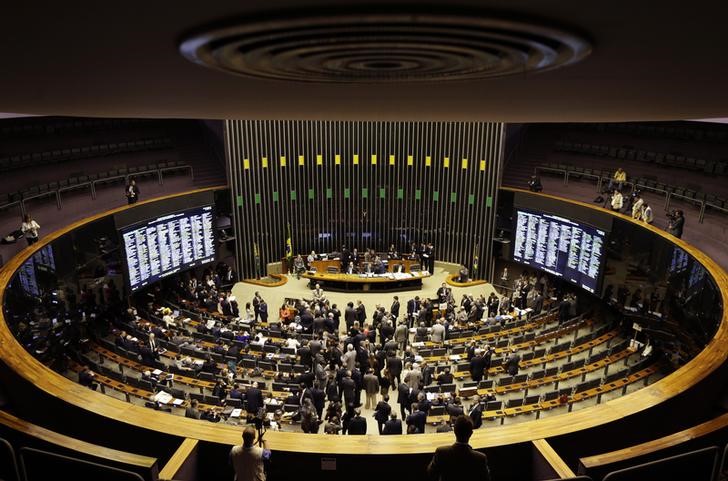 Donald Trump speaks during an event about drug prices on Nov. 6, 2025, in the Oval Office of the White House in Washington. Photo: Evan Vucci/AP Photo
Donald Trump speaks during an event about drug prices on Nov. 6, 2025, in the Oval Office of the White House in Washington. Photo: Evan Vucci/AP Photo ![]()
Alain Stephens is an investigative reporter covering gun violence, arms trafficking, and federal law enforcement.
For the second time in a decade, Washington has shut itself down in a budget standoff, and ordinary Americans are quite literally paying the price. As of this writing, the federal government is in its second month of a shutdown, and 42 million Americans who rely on food stamps got nothing on November 1 — the first time in the Supplemental Nutrition Assistance Program’s 60-year history that benefits have been fully halted. Think about that: Millions of families woke up hungry because politicians in Washington couldn’t do their jobs. It’s nuts.
After public pleas of desperation and multiple court orders, the Trump administration was forced to turn the food back on, but it’s now appealing that ruling, whiplashing Americans facing acute scarcity and economic anxiety.
We’ve started to accept these crises as routine, like a new season of some twisted reality show. With each episode, the fatigue and fury of being used as political pawns only deepens. But this shutdown is different in a way. For the first time in modern American history, its leader is intentionally starving his own people.
In the United States, federal shutdowns have become de facto political theater — a reckless game of chicken that recurs with grim regularity. Since 1976, Congress has triggered 20 funding gaps resulting in 10 full or partial shutdowns, with the longest stretching 35 days. What was once unthinkable has become almost seasonal. Autumn rolls around, and Americans brace for the familiar countdown to chaos: Will our representatives fund the government, or take it hostage?
The current saga began like so many before it: a clash of priorities and a collapse of governance. House Republicans pushed their budget cuts that would imperil health care; Senate Democrats insisted they would only vote to pass a budget that extended tax credits on health care and reversed Medicaid cuts. Republicans lack the needed majority to have their way and refuse to compromise with Democrats. Neither would blink, so on October 1, the lights went out. Offices shuttered. Hundreds of thousands of federal workers were sent home or ordered to work without pay. Lawmakers gave floor speeches and media soundbites, and went to politicking. But behind the grandstanding, real families immediately began to hurt.
For the first time in modern American history, its leader is intentionally starving his own people.
To many on Capitol Hill, this is all just part of the show. A shutdown is treated as a leverage move, a stunt to score ideological points or appease extremist donors. In 2013, one senator read Dr. Seuss on the Senate floor during a shutdown, as if it were storytime instead of a national crisis. In 2019, then-President Donald Trump quipped that unpaid federal workers should encourage his shutdown tactics, while his commerce secretary mused that he didn’t understand why unpaid workers were visiting food banks at all.
These people behind mahogany desks don’t feel the flames they fan. They still draw their salaries — yes, members of Congress still get paid during a shutdown — while a janitor or a park ranger loses theirs. The disconnect would be darkly funny if it weren’t so brutal. From the comfort of cushy offices, political strategists are already gaming out the next confrontation, like it’s a chess match.
No group of Americans has been more cynically weaponized in this standoff than those who depend on SNAP. This isn’t some fringe handout; it’s the nation’s largest anti-hunger program, serving working-poor families, children, seniors, and people with disabilities. Shutting down the government has put these Americans directly in the crosshairs. When November arrived, nearly 42 million people who count on SNAP to eat were told there was no money for food assistance. Despite access to a $5 billion emergency fund that the Trump administration refused to disburse, the program for the first time ever simply stopped.
Food aid quickly became a bargaining chip to extract concessions. Trump (back in office and seemingly emboldened by chaos) outright threatened hungry Americans on social media, declaring that benefits “will be given only when the Radical Left Democrats open up government … and not before!” In other words: We’ll let your children starve until we get our way. Trump is using food as a weapon, and he’s hardly hiding it.
Democratic leaders, for their part, tried a symbolic move to fund SNAP during the shutdown — only to be blocked by the Republican Senate majority, who accused them of political stunt-making. “Kids and families are not poker chips or hostages,” Democratic Sen. Jeff Merkley said, decrying the “unbelievably cruel” reality that food aid was being held hostage by political games. Unbelievably cruel, indeed. To be absolutely clear, Republicans are holding Democrats to a dark arrangement: Give up extended health care tax credits and preserve Trump’s Medicaid cuts, or watch the poorest Americans go hungry.
That people in a country this rich require such support is an outrage in itself and the result of decades of bipartisan governing that has harmed the poor.
At food pantries across the country, the lines began swelling almost immediately. Food banks from New York to Texas saw surging demand as low-income households — and even furloughed federal workers — scrambled to fill the void. States like New York hustled to release emergency funds, and charities begged for donations to stave off mass hunger. The stopgaps will feed some, but they can’t possibly replace SNAP’s reach. A federal court ordered the Department of Agriculture to draw on contingency funds to ensure SNAP benefits are paid in November, but the ruling only provides a temporary remedy, not a long-term solution to the program’s broader funding crisis.
It’s pure absurdity: We live in one of the wealthiest countries on Earth, yet our leaders have engineered a method where millions can be cut off from food overnight as a negotiation tactic. That people in a country this rich require such support is an outrage in itself and the result of decades of bipartisan governing that has harmed the poor.
Our government has spent years subsidizing corporations that pay poverty wages while providing just enough aid to keep workers afloat — and then they freeze that critical aid. Republicans and Democrats alike have failed to tackle the chronic issues of increased costs of rent, housing, food, and medical care, perpetually kicking the can down the road and placing ever-widening swaths of Americans at risk. Mega-employers like Walmart pay notoriously low wages that leave employees reliant on public assistance; in fact, Walmart’s low-paid workers cost taxpayers an estimated $6.2 billion a year in food stamps, Medicaid, and other help. It’s a vicious cycle: Our policies prop up “working poverty” with programs like SNAP, effectively incentivizing companies to keep wages down. Both parties haven’t done enough to keep people off the brink, but one party right now is pushing people off it.
We’ve set the stage so that millions of Americans are one missed check away from hunger, then we dangle that over their heads for political gain. As one grandmother in Tennessee put it when she heard her $563 in monthly food stamps might not come: “I don’t know what I’ll do.” There’s nothing abstract about a mother skipping meals so her kids can eat, or a disabled veteran quietly rationing canned soup because his country won’t keep its doors open. “Time is of the essence when it comes to hunger,” lawyers for food aid recipients reminded a federal judge, urging immediate intervention.
The cruelty goes further. In this shutdown, even WIC — the program for women, infants, and children — teetered on the brink. Nearly 7 million mothers and young kids who rely on WIC for baby formula and basic nutrition were at risk of being cut off. Only a last-ditch shuffle of funds (raiding an Agriculture Department tariff revenue stash) kept WIC afloat for a few weeks.
But SNAP got no such rescue. The administration flatly refused to tap the same pool to cover food stamps, calling it “unacceptable” to shift $4 billion from other child nutrition programs. In other words, they argued feeding hungry families would steal from schoolchildren’s lunches — a false choice created entirely by their own refusal to govern.
Meanwhile, the president’s allies in Congress insisted there was no reason to fund SNAP in isolation; if Democrats wanted to feed people, they should just surrender and reopen the government on Republican terms. Hunger, in their view, is leverage. In 2023, one GOP state senator even claimed that he had “yet to meet a person in [his state] who is hungry,” as he voted to block free school meals. Another Republican quipped that maybe a missed meal would motivate the unemployed to get a job.
Time after time, the GOP has made it public through policy and dialect its disdain for America’s working poor. Now the message is loud and clear: a little starvation is acceptable collateral damage in service of the agenda.
Step back and behold the full dystopia of this moment. We have a government that periodically sabotages itself. We have partisan warlords so entrenched in their battle that they’re willing to withhold food from their own citizens to win full control of the state machinery. The GOP’s long-term project isn’t just to shrink government — it’s to break it, to erode American’s faith that their government can or should serve the common good.
How did we, the people, become the hostages?
We have surpluses and wealth in this country beyond imagination, yet 27.5 million tons of American soybeans sat unsold at one point as a result of trade war tariffs — food rotting in silos because of political machinations — while children in this same country go to bed hungry. How did basic governance get twisted into a hostage crisis? How did we, the people, become the hostages? Each shutdown, each manufactured crisis, chips away at whatever trust remains in our institutions.
The karmic cost of this dysfunction is incalculable. For a growing number of Americans, the idea that the government can solve problems or serve the public good is dying out, replaced by nihilism and anger. And perhaps that’s the point for some of the perpetrators: Break faith in government, then point to the wreckage and say, “See, it doesn’t work.” It’s a cynical self-fulfilling prophecy.
As this nightmare of a shutdown drags on, one can’t help but feel that our democracy is at a precipice. A government that repeatedly holds its own people hostage will eventually lose those people’s hearts. We are tired, bone-tired, of the political arsonists and their endless theater. The real test of patriotism now isn’t in the Capitol’s rhetoric, it’s in the character of the nation’s people. And if there’s any hope to be found, it’s in those everyday patriots with grumbling stomachs and unwavering resolve. They remind us that America is not its lawmakers. America is its people. And if the people can somehow endure this abuse and still help each other through it, then maybe — just maybe — this house won’t burn down completely.

 German (DE)
German (DE)  English (US)
English (US)  Spanish (ES)
Spanish (ES)  French (FR)
French (FR)  Hindi (IN)
Hindi (IN)  Italian (IT)
Italian (IT)  Portuguese (BR)
Portuguese (BR)  Russian (RU)
Russian (RU) 





:strip_icc()/i.s3.glbimg.com/v1/AUTH_59edd422c0c84a879bd37670ae4f538a/internal_photos/bs/2023/l/g/UvNZinRh2puy1SCdeg8w/cb1b14f2-970b-4f5c-a175-75a6c34ef729.jpg)










Comentários
Aproveite ao máximo as notícias fazendo login
Entrar Registro